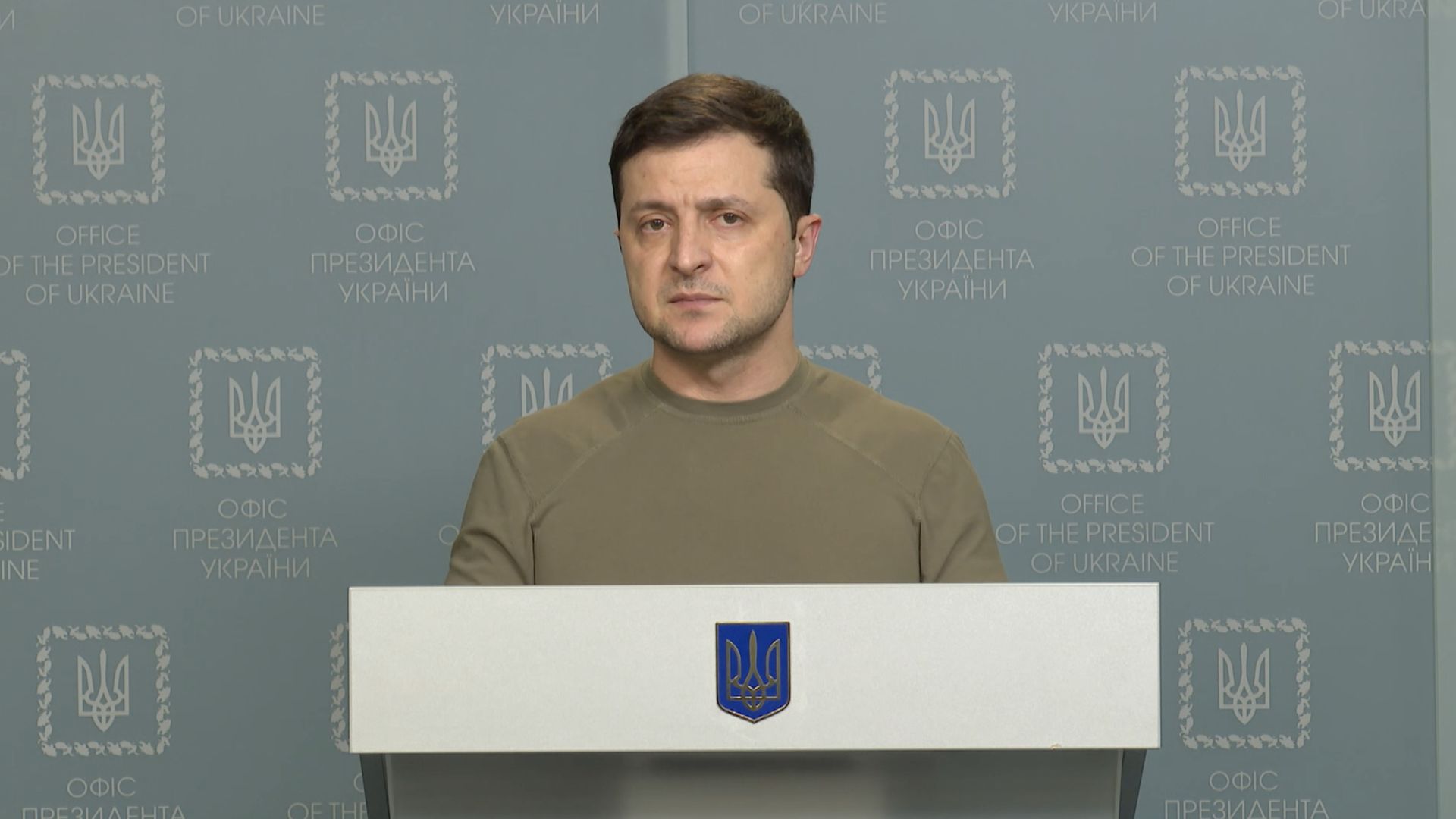Before he became the president of Ukraine, Volodymyr Zelensky played the part on television. He created and starred in a comedy series, Servant of the People. His character, a high-school history teacher, is surreptitiously recorded by one of his students as he passionately rants against the tyranny of corruption in his nation. Without his knowledge, the video goes viral. Without campaigning or even wanting the job, the teacher is improbably elected president of Ukraine. The humble everyman, out of his depths in nearly every respect, goes on to become a heroic leader of his country.
Entertainers who enter politics are rightly treated with suspicion, because they are experts at the most dangerous part of the job, the manipulation of mass emotion. And in Ukraine, any outsider who rises to power engenders even greater suspicion because the assumption is that they must be doing the bidding of some shadowy force or other. As Zelensky has stumbled through his actual career in politics, those doubts have dogged him. It sometimes seemed as if he governed as an amateur doing his middling best, someone simply playing the part.
But in life, as in the fictional version he created, Zelensky, slightly diminutive and gravelly-voiced, has been subjected to the most intense stress test of character. In the course of the past terrible week, he revealed himself.
Yesterday, Zelensky told a videoconference of European leaders that they would likely not ever see him again. The whole world can see that his execution is very likely imminent. What reason does he have to doubt that Vladimir Putin will order his murder, as the Russian leader has done with so many of his bravest critics and enemies? Zelensky’s fate is so clear that Washington offered to extricate him from Kyiv, so that he could form a government in exile. But Zelensky swatted away the promise of safety. He reportedly preferred that Washington deliver him more arms for his resistance: “The fight is here. I need ammunition, not a ride.”
His willingness to die is testimony to the new Ukraine, which its people are now rallying to protect. Born in the Russian-speaking industrial city of Kryvyi Rih, a bleak metropolis of blast furnaces, Zelensky broke free from the grime with his skill for broad, physical comedy in the style of Benny Hill. Along with a group of his friends, he created a comedy troupe that became one of the most beloved acts in the post-Soviet world. He built an entertainment empire in Russia and could have remained successful in that sphere. But in 2014, after Putin invaded the country of his birth, he donated money to the scraggly Ukrainian army—an act that put him on the wrong side of the Russian government.
Zelensky relocated his production company to Kyiv and began to truly master the Ukrainian language. This wasn’t out of a blood-and-soil attachment to native land. It was an affirmative endorsement of the country he saw Ukraine becoming—the easternmost outpost of cosmopolitan Europe, a place that might elect a Jewish vaudevillian president. That a relative outsider has come to lead that nation—and is willing to die for it—is perhaps the most stirring validation of the cause.
When Zelensky rejected Washington’s offer of exile, he wasn’t making an obvious decision. After Germany invaded France, Charles de Gaulle made his way to London. Or to take a more recent example: Afghan president Ashraf Ghani boarded a helicopter out of Kabul the moment he heard a rumor that the Taliban had entered the city. And, really, who could blame them? Most human beings would rather not have their enemies hang their corpse from a traffic light, the sort of historic antecedent that is hard to shake from the mind.
In Ukraine, the decision for a leader to flee would be the expected choice. It’s what his predecessor, Viktor Yanukovych, did in the aftermath of the revolution in 2014, leaving behind his palace filled with exotic cars and ostriches for the safety of Moscow. The enduring failure of Ukrainian democracy has been the gap between the code of behavior that applies to the elite and the one that the rest of the country must follow. It’s been the elites who profit off the state, who stash their ill-gotten fortunes in French villas and Cypriot bank accounts, while their compatriots have stagnated. By staying put, Zelensky has erased this gap. There’s no airlift awaiting his fellow residents, so rather than accepting the perk of his position, he’s suffering in the same terror and deprivation that they are forced to endure.

